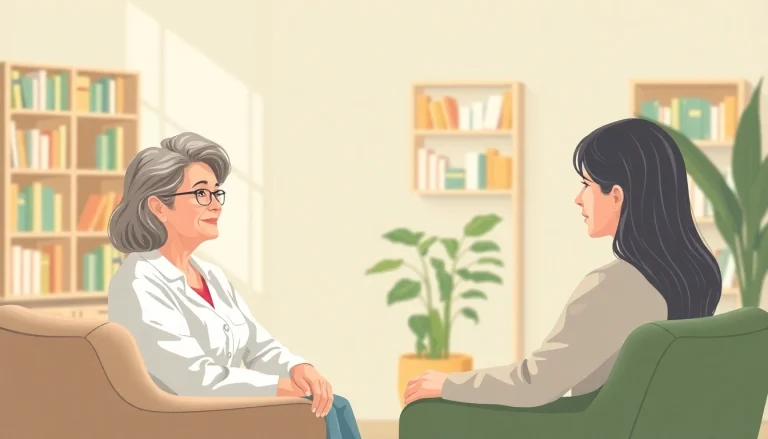
1. Introduction to Grief and Its Impact
Grief is a universal experience, often arising from the loss of a loved one, yet its complexity transcends mere sorrow. It encompasses a wide array of emotions ranging from deep sadness to profound anger, affecting not only our emotional well-being but also our physical and mental health.
The journey of grief can be challenging, as individuals seek to understand and navigate their pain. Dealing with grief is not merely about experiencing sadness, but engaging in a transformative process that impacts one’s life irreversibly. Understanding grief is the first step towards healing.
1.1 What Is Grief?
Grief is a multifaceted response to loss, particularly when someone or something we love is taken away. It can stem from various circumstances, including the death of a family member, the end of a significant relationship, or even changes in one’s physical health. Psychologically, grief can be categorized into several types: anticipatory grief, complicated grief, and disenfranchised grief, each distinguishing varying depths of emotional responses and coping mechanisms.
Anticipatory grief occurs when individuals face the impending loss of a loved one, allowing them time to process their emotions before the loss actually occurs. Complicated grief, on the other hand, can linger long after the loss and may manifest as an inability to resume daily life. Disenfranchised grief refers to grief that is not openly acknowledged or supported by societal norms, such as the loss of a pet or a relationship breakup.
1.2 Common Symptoms of Grief
Grief manifests itself in various emotional and physical symptoms. Emotionally, one might experience shock, disbelief, anger, guilt, or intense sadness. Physically, symptoms can include fatigue, insomnia, and a weakened immune system. Acknowledging these symptoms is critical; they are normal responses to loss rather than signs of weakness.
Grief can affect cognitive functions, leading to difficulties in concentration and decision-making. It may also manifest through social withdrawal and behavioral changes, making it essential to understand that these reactions are typical as one processes their feelings.
1.3 The Importance of Acknowledging Grief
Acknowledging grief is vital for healing. Suppressing emotions may lead to prolonged suffering and complications in one’s mental health. Public perception of grief often carries stigma, with individuals feeling pressured to conceal their grief. However, embracing it allows individuals to foster connections with those around them, promoting a supportive environment.
Open discussions about grief can cultivate understanding and empathy, allowing individuals to share their experiences and receive encouragement from peers or professional help. Grief should be viewed not as a burden, but as a part of the human experience that requires recognition and validation.
2. The Grieving Process: Stages and Emotions
2.1 Understanding the Stages of Grief
Several models have attempted to categorize the stages of grief, the most well-known being Elisabeth Kübler-Ross’s five stages: denial, anger, bargaining, depression, and acceptance. While these stages do not occur linearly, they provide a framework for understanding the emotional turbulence experienced during grief.
Denial serves as a defense mechanism, providing a buffer against the initial shock. As one progresses to anger, feelings of frustration and helplessness often surface. Bargaining may involve a desperate attempt to regain control or reverse the situation, followed by deep sadness marked by a profound sense of loss. Finally, acceptance is characterized by the acknowledgment of the new reality and the ability to move forward.
2.2 Emotional Responses When Dealing with Grief
Emotional responses to grief are deeply personal and varied; no two individuals will navigate grief in the same way. Common feelings can oscillate between sadness, anger, guilt, and even relief, especially in cases of prolonged suffering. It’s crucial to understand that these emotions are not pathological but rather a natural part of the grieving process.
Furthermore, societal norms often dictate how individuals should express their grief, leading to additional stress. Allowing oneself to feel the emotions and express them appropriately—whether through tears, laughter, or verbal expression—is essential for healing.
2.3 Navigating Through Different Grief Processes
There is no universal timeline for grief, and the process may differ based on individual circumstances such as the nature of the loss, the relationship with the deceased, and cultural factors. Some may find comfort in rituals, while others may need space and time alone. It is essential for individuals to honor their own unique processes and not compare themselves to others’ experiences.
Support systems, whether through family, friends, or professional therapists, can play a vital role in helping individuals navigate their unique grief journeys. Finding avenues for expression, whether through writing, art, or support groups, can facilitate healing.
3. Healthy Coping Strategies for Grieving Individuals
3.1 Seeking Support from Friends and Community
Isolation can worsen feelings of grief, making it essential to seek support. Friends and family can provide vital emotional sustenance, offering a listening ear and a shoulder to lean on. Additionally, connecting with community groups or support circles comprising individuals who have experienced similar losses may help facilitate healing through shared understanding.
Group therapy has proven effective for many, as it provides a structured environment where individuals can share their experiences and feelings in a safe space, ultimately reducing feelings of loneliness and alienation.
3.2 The Role of Professional Help in Grieving
Professional therapists or counselors specializing in grief can provide invaluable assistance. They offer tailored approaches to help individuals understand their feelings and develop effective coping strategies. Therapy options include cognitive behavioral therapy (CBT), which focuses on changing negative thought patterns, and narrative therapy, which allows individuals to reframe their narratives in healthier ways.
Professional guidance can be particularly important for those experiencing complicated grief, where feelings persist or become overwhelming. Support from mental health professionals can help individuals find productive ways to process their pain and eventually foster resilience.
3.3 Techniques for Self-Care During Grief
Self-care plays a crucial role in managing grief. It is essential to prioritize physical health through adequate nutrition, hydration, and exercise. Even small activities like taking a walk can boost mood and reduce stress. Additionally, sleep hygiene should be emphasized, as adequate rest allows the mind and body to heal.
Integrative approaches such as mindfulness meditation, yoga, and journaling can help individuals navigate their emotional experiences. Practicing gratitude, focusing on positive memories, or engaging in hobbies can also provide reprieve from grief, enabling individuals to regain a sense of normalcy in their lives.
4. The Role of Rituals and Remembrance
4.1 Planning Memorial Services or Tributes
Memorial services serve as a collective space for the community to honor and remember the deceased. These events can help facilitate healing, providing an opportunity for loved ones to gather, share memories, and support each other. Planning the service can be cathartic, allowing individuals to focus on the positive impact the deceased had on their lives.
Personalized memorials that incorporate the deceased’s passions and interests can enhance the meaning of the tribute, allowing attendees to connect deeply with their memories and feelings.
4.2 Establishing Personal Rituals for Healing
Personal rituals can play a significant role in the healing process. Whether lighting a candle on significant anniversaries, creating a scrapbook of memories, or planting a tree in the deceased’s honor, these actions help commemorate the relationship and provide ongoing opportunities for connection.
By establishing rituals, individuals create new spaces for emotional expression, allowing them to integrate the loss into their ongoing lives while acknowledging their grief.
4.3 Sharing Memories as a Coping Mechanism
Sharing stories and memories can serve as a powerful instrument for coping. It not only honors the deceased but also helps to reinforce relationships among those left behind. Engaging in conversations about love, laughter, and shared experiences can lighten the emotional load and foster a sense of community.
Utilizing platforms like social media or creating memory books can provide spaces for individuals to share their stories and experience collective healing.
5. Moving Forward: Finding Joy After Loss
5.1 Redefining Life Post-Grief
Life after experiencing loss necessitates a redefinition of one’s self and purpose. While the void left by the loved one may never fully disappear, individuals can find new meanings and paths forward. This might include pursuing new interests or careers that resonate with their values or embracing new roles that reflect their evolving identity.
Finding ways to integrate the memory of the loved one into day-to-day life can also create a sense of continuity, where honoring their legacy becomes a motivating force to strive for personal growth.
5.2 Embracing New Relationships and Experiences
As time passes, individuals may find themselves ready to embrace new relationships and experiences. This can be daunting, with feelings of guilt or apprehension surfacing. However, developing new connections offers avenues for healing and support. Recognizing that it’s possible to love others while still cherishing the past is crucial for moving forward.
Building new memories and experiences can help individuals re-engage with life positively, reminding them that while loss is part of their journey, it doesn’t have to define their present or future.
5.3 Continuing the Legacy of the Loved One
Continuing the legacy of a loved one can be a profound way to cope with grief. This might involve engaging in charitable activities, creating art or literature inspired by the loved one, or promoting causes that were important to them. Not only does this keep their memory alive, but it also provides purpose and fulfillment in the grieving individual’s life.
By actively honoring a loved one’s memory, individuals can find joy in the context of loss, acknowledging that their legacy can continue to influence the world positively through their actions.




